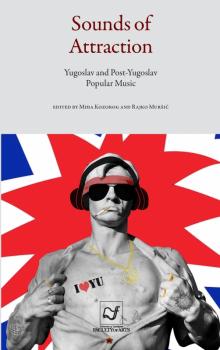Sounds of Attraction: Yugoslav and Post-Yugoslav Popular Music
Ključne besede:
Yugoslavia, popular music, socialismKratka vsebina
Popularna glasba v nekdanji Jugoslaviji je imela veliko globlji vpliv na razvoj socialistične države in njenih naslednic, kot bi morda izhajalo iz običajnih mnenj o njeni usodi. Zbornik, v katerem sodelujejo avtorji in avtorice z območja nekdanje skupne države, predstavlja občutenja, pripovedi in spomine na popularno glasbo v Jugoslaviji in njenih državah naslednicah.
Poglavja
-
Various Communities of Feeling in (post-)Yugoslav Popular Music:An Introductory Reflection
-
Povzetek
-
Summary
-
Topic Index
-
Name Index
-
Early Slovenian Gramophone Records and Their Popularity
-
The “Jaranization” of Yugoslav Rock and Roll before 1974:Use of Folklore in the Early Stages of the Development of the Yugoslav Rock Scene
-
Photographic Images of 20th Century Popular Music Captured by the Lenses of Slovenian Photojournalists at the National Museum of Contemporary History
-
Popular Music Under the Siege:Patriotic Songs in Sarajevo
-
Rokeri s Moravu and the Politics of Parody in Socialist Yugoslavia
-
Doubly Excluded, Doubly Included, “Something In-Between”:A Bosnian Refugee Band and Alternative Youth Culture in Slovenia
-
Exotic Anthropological Perspectives and Yugoslav Popular Music
-
Ideologies of Love at Concerts:Yugoslav Popular Music on Post-Yugoslav Stages
-
Partisan Resistance Today?The Music of the National Liberation Struggle and Social Engagement
-
About the Authors
Downloads

Najavljeno
18 August 2018
Zbirka
Kategorije
Podrobnosti o formatu publikacije na voljo: PDF
PDF
ISBN-13 (15)
978-961-237-964-3
Date of first publication (11)
17.03.2018
Islamski koledar
Kako citirati
Kozorog, M., & Muršič, R. (Eds.). (2018). Sounds of Attraction: Yugoslav and Post-Yugoslav Popular Music. Založba Univerze v Ljubljani. https://doi.org/10.4312/9789612379643

